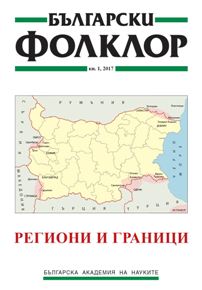
We kindly inform you that, as long as the subject affiliation of our 300.000+ articles is in progress, you might get unsufficient or no results on your third level or second level search. In this case, please broaden your search criteria.

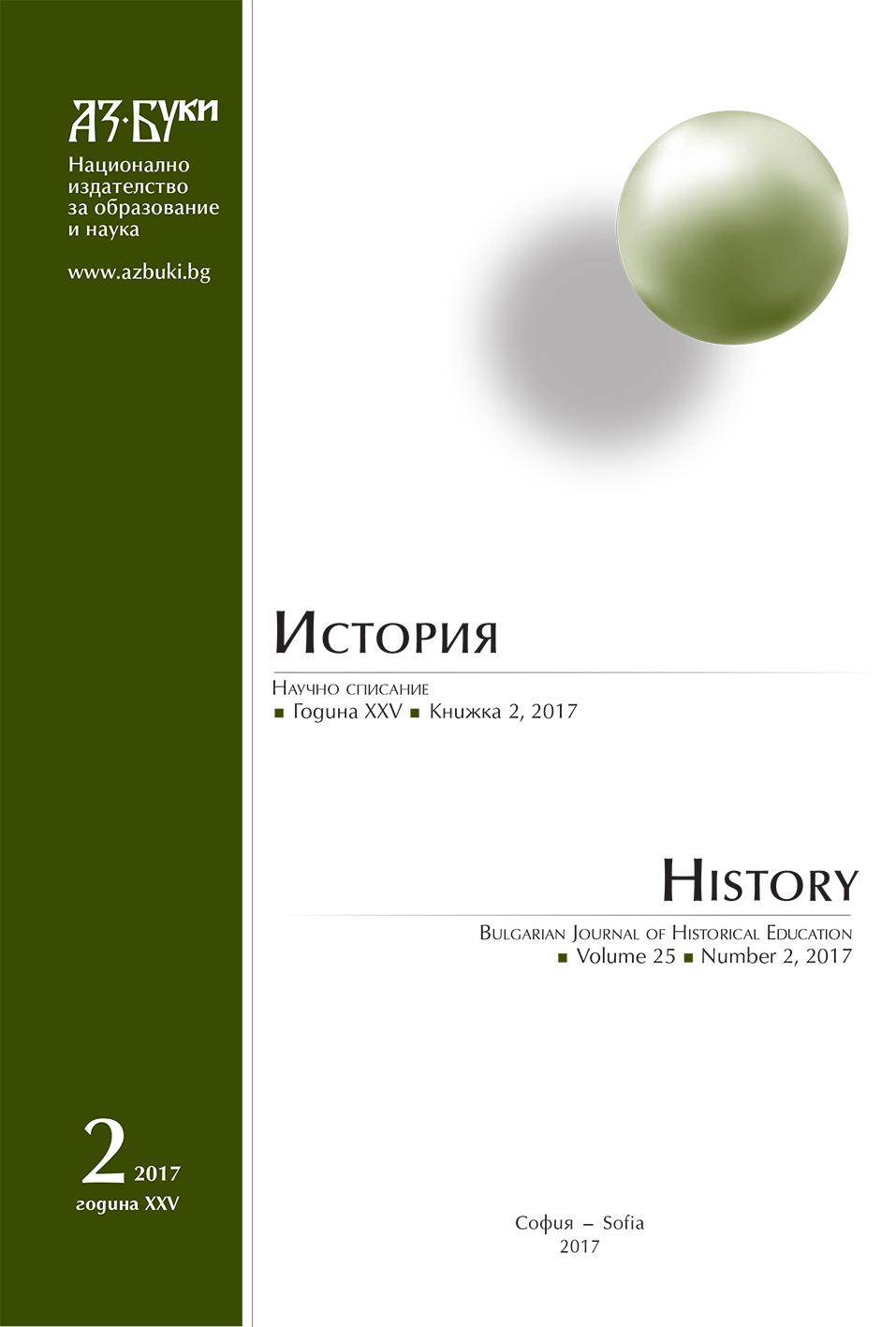
The Migration of Muslims to Western Europe attains significance after the World War II, because in this part of the old continent workers are badly needed for the development of industries of Western European countries. After 1945 till the beginning of XXI century there were five waves of Migration of Muslims to Western Europe. Although the politics of Western countries has some peculiarities towards the Muslims, the end results of this policy builds up parallel communities within the societies of these countries. These parallel communities hinder the integration of Muslims. At the religion the Muslims find a rallying point and the religion serves as a base for creation of Identity. Gradually the Muslims become a political factor because their number increased constantly. On surface arise the question about the integration or disintegration of Muslims. This question is at the center of the political or scientific discussion.
More...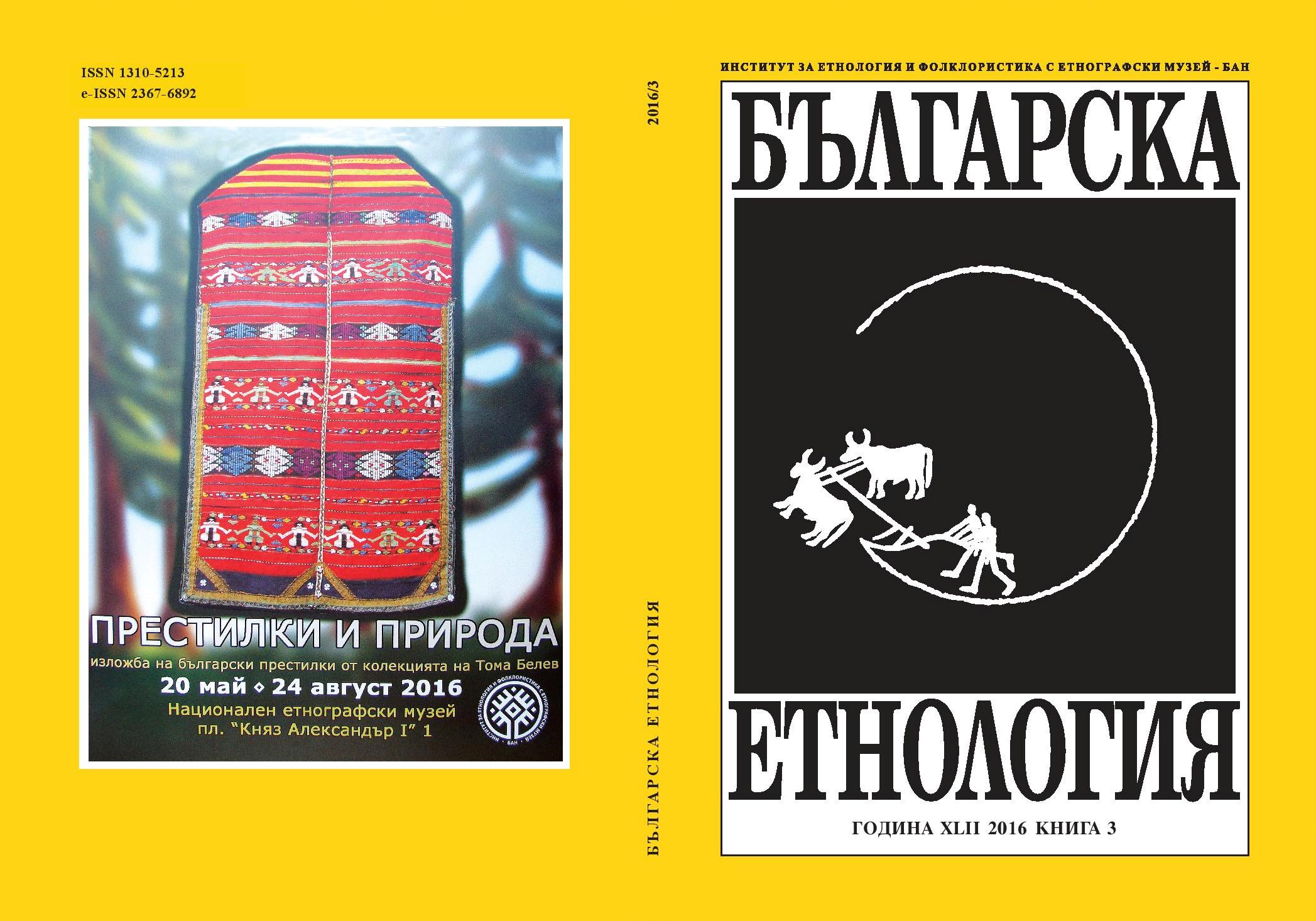
The Areca nut is one of the products found in South Asia, Southeast Asia, andSouthern China. In China, being an exotic product that can be grown only in tropicalclimate, the Areca nut used to be highly appreciated and considered as a precious giftamongst the nobles in the past, especially during the Tang and Song dynasties. Whilein Vietnam, throughout its history, the Areca nut, because of its inherent spiritualvalue, has been an indispensable object of sacrifice in Vietnamese ancestral worshipas well as their lifetime rituals such as weddings, funerals and during childbirth. Apartfrom being an essential offering in rituals and ceremonies, the Areca nut traditionallywas also a means of mobilizing Vietnamese people’s social interactions (includingcourting between young boys and young girls).After doing a short description on how the Areca nut was used as a gift and as asacrificial object respectively in China in the past and in Southeast Asia, this article,from a historical point of view and with the author’s first hand materials from herfieldwork in Vietnam, attempts to show and explain both why and how the Arecanut has been functioning as a core indispensable object in sacrifices as well as ritualsand also as a means of social interaction in Vietnam. Thus, the article emphasizesthe important role that the Areca nut plays in Vietnamese people’s spiritual life andculture.
More...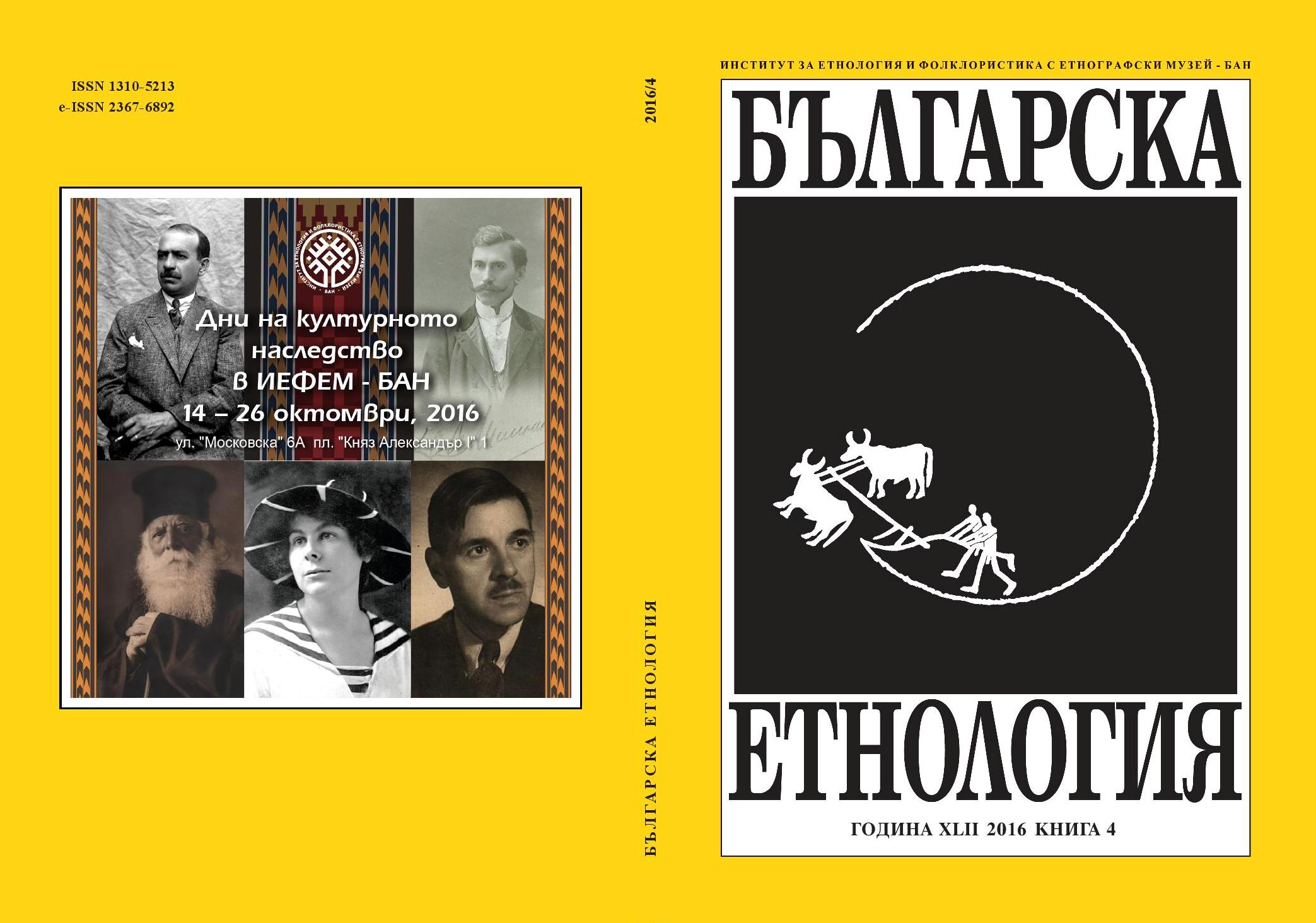
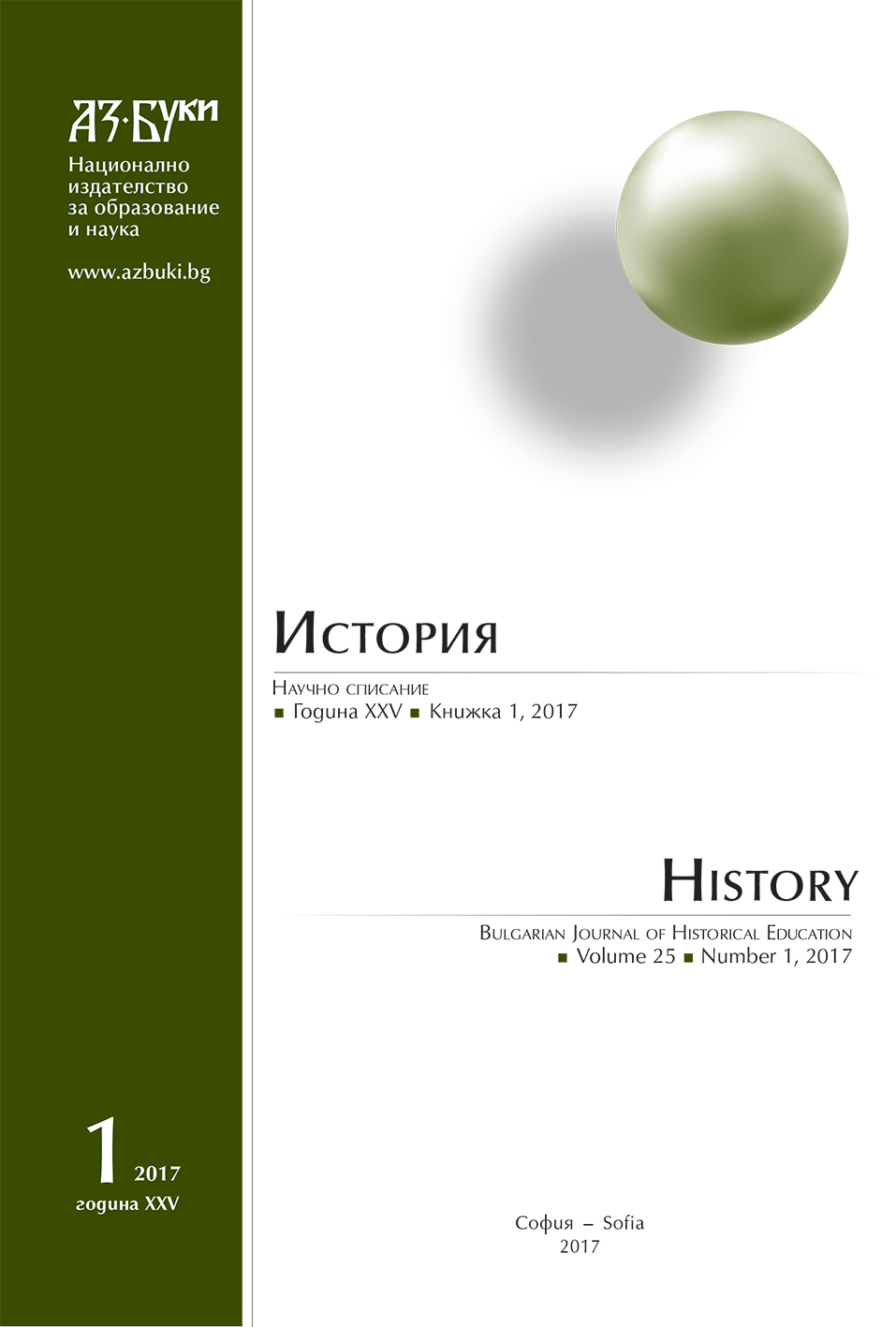
The French Republic supported the spread of republican principles in Europe, but most of these sister republics became a means of controlling occupied lands through a mix of French and local power as client states. This article aims to analyze the outcome of the revolutionary triennium (1796 – 1799), when as a result of the French conquest of the peninsula some republics were established.
More...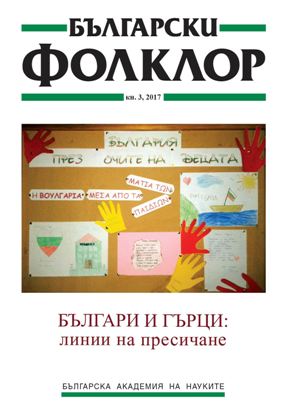
The Balkan Wars (1912–1913) triggered in Bulgaria and Greece unseen enthusiasm and hope for prosperity, as well as for the ‘liberation of our brothers living under yoke”. In the Bulgarian society the Balkan Wars have left a deep emotional trauma. But how does the Greek society evaluate these events? How durable are the Greek military victories and do they nurture new internal or external problems? How do the people in Greece evaluate their own contribution to the success in the Wars and how do they see themselves and their neighbors? What is the relationship between tradition and modernity and what is the place of humanism in this military clash? Is the image of the war undergoing a process of democratization?Seeking for the answers of these and other questions, we decided to present a Greek album from the period. The album is dedicated to the Balkan Wars and remains poorly known. We hope that the analysis of the illustrations in it will enable us to trace the attempt of the authors of the album to influence the audience and will thus allow to see the Balkan Wars through the eyes of the Greeks from the beginning of the 20th century.
More...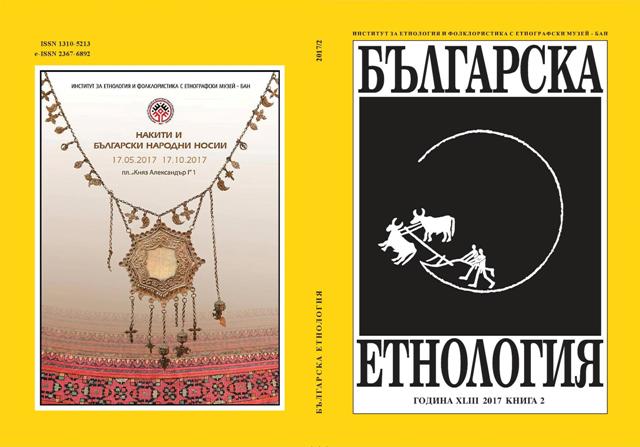
In the last years, the “Roma topic” attracts an increasing interest and takes a fopemost place in the public sphere of united Europe; hence, the Roma policies become a significant challenge on national and European level. Before analyzing the contemporary political discourses about the integration and the social inclusion of Roma, however, it is obligatory to know very well the previously existing state policies toward the Gypsies from the time of their arrival in Europe in the Middle Ages until today. Since a great number of the Roma population continues to live in the countries of Eastern Europe, the policies of the states which formed the “socialist camp” after World War II are very important. The analysis of the existing main political discourses about the Gypsies/Roma (and mostly of their results) should be the basis for the analysis of the contemporary national and European discourses about the Roma policies. Based on this, the achievements and the failures of those policies may find explanation and some prognoses about their results (or the lack of such) could be made.
More...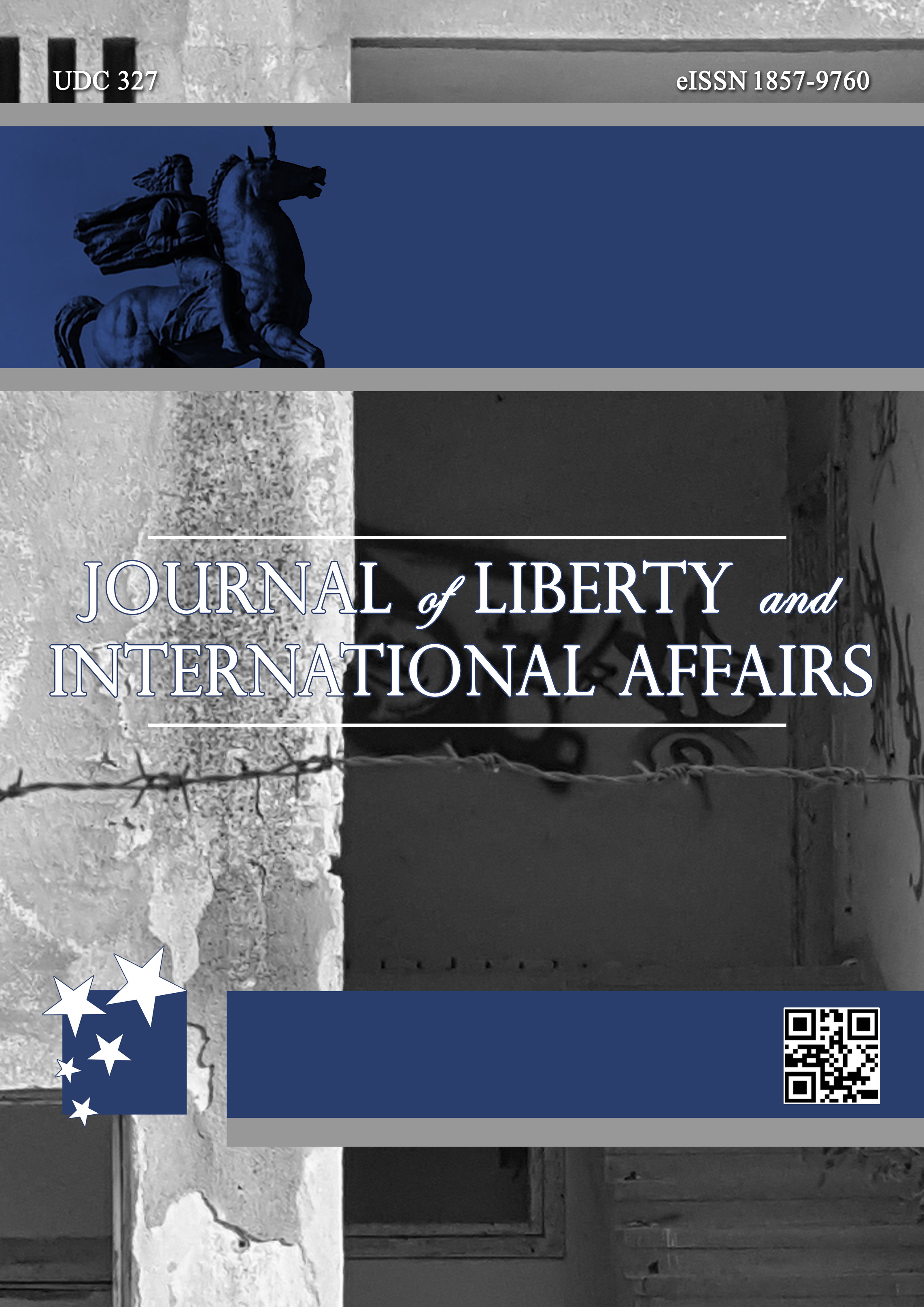
The Syrian civil war exacerbated sectarian divisions between the Alawite-ruled Syrian government and Syria’s Sunni population, straining also the relations between the Sunni majority and Alawite and Alevi minorities of the neighboring Turkey. The Alawites and Alevis of Turkey were predominantly supporting Syria’s president Bashar al-Asad, while the Turkish government greatly supported the Sunni insurgents of Syria. The paper aims at examining how Alawites and Alevis have influenced the relations between Turkey and Syria in the light of the Syrian civil war, the reasons behind the sympathy of Alevis for the Syrian government and the implications that Turkey’s Syria policy has had domestically. It finds that the Alevi / Alawite factor has had some restraining effects on Turkey’s antagonistic policy towards Syria. In the introductory part, the article touches upon the differences and the similarities between Alevis and Alawites, then it analyzes the developments in regards Turkey’s policy towards the Syrian crisis that were also reflected in Ankara’s domestic policy vis-à-vis its Alevi and Alawite minorities.
More...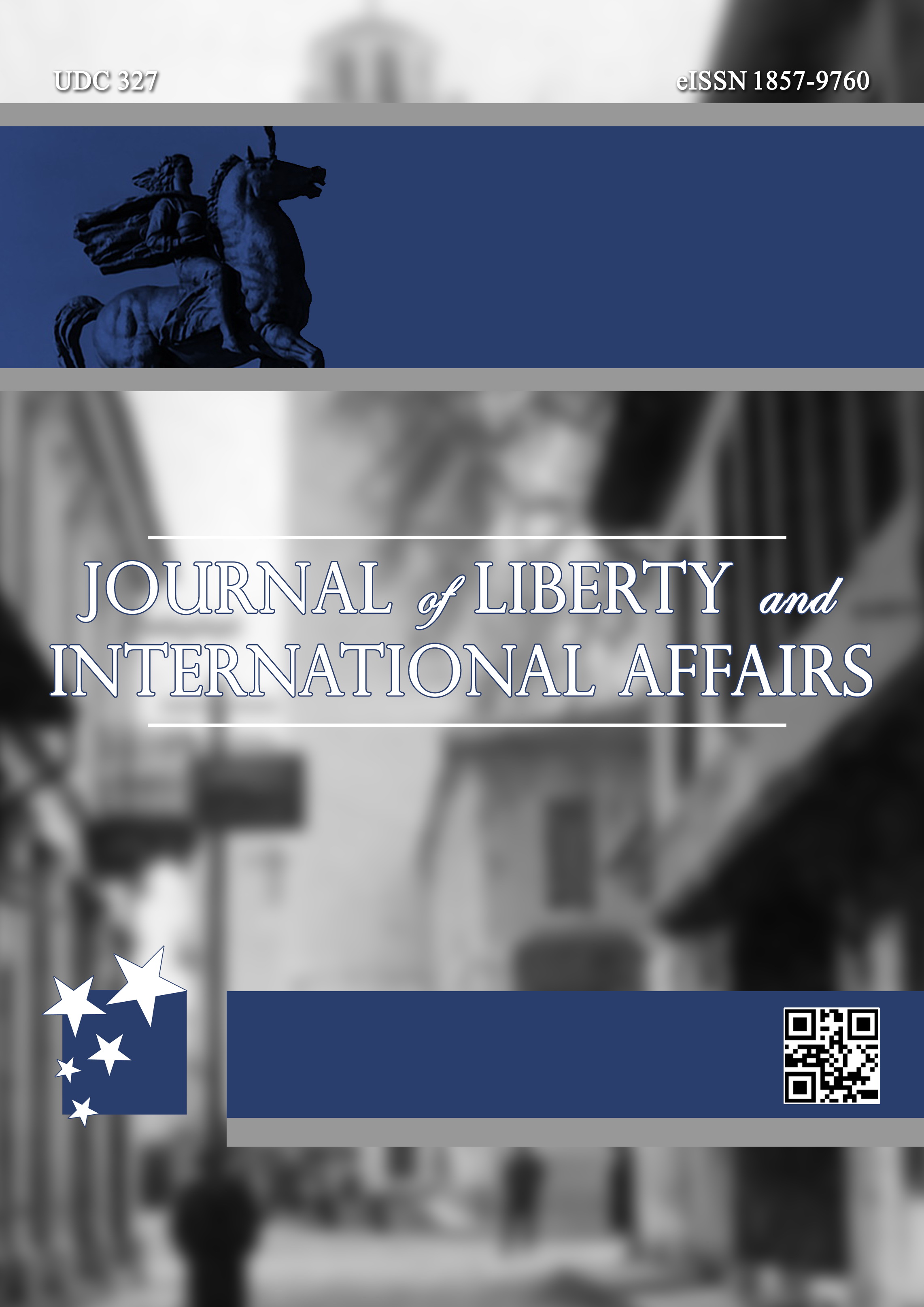
Nigeria is the most populous black nation in the world, member of the UN Security Council and largest economy of Africa. In addition to its globally acknowledged qualitative oil, it also has large deposits of mineral resources including tin, coal and gypsum, gold and lead. The country is not only engaged in a passionate competition with South Africa to attain the position of a continental superpower preparatory towards becoming a globally acknowledge giant but also comfortably playing a big-brother role among Africa nations. This paper uses documentary analysis to examine Nigeria’s social, economic and global potentials of fulfilling its dreams vis-a-vis the potentials of its competitor(s). The paper found out that Nigeria faces multidimensional challenges on its path towards continental leadership ranging from domestic problems of rising crime, incessant insurgency, dilapidated infrastructure, growing unemployment, over-reliance on dwindling oil income and leadership crises among others to intense competition from other strong African countries like South Africa, Egypt and Ethiopia. The paper concludes that the country’s goal of a regional superpower status is achievable but Nigeria must address its domestic challenges to win the race of attaining continental hegemony.
More...
The main objective of this article is to analyze the impact of Ankara’s reference to the legacy of the Ottoman Empire on contemporary Turkish foreign policy and the attitude of Poland towards such a reversal in Turkish diplomacy. Turkey is now more aware that it has no chance of gaining European Union membership. In this situation, Ankara has begun to emphasize its Eurasian character and is trying to build its influence in the region, in particular among eastern and southern neighbors. To have a greater impact on its neighbors, Turkey refers to the legacy of the Ottoman Empire. The weakening of Ankara's political relations with the western world is particularly worrisome for Poland, which appreciates Turkey's geostrategic position and its role in the European security system. The greatest concern among Poles is caused by the political and economic rapprochement between Ankara and Moscow. What also disturbs Poles is the fact that Turkey, which had made pro-democratic efforts, is departing from the principles fundamental to Europeans.
More...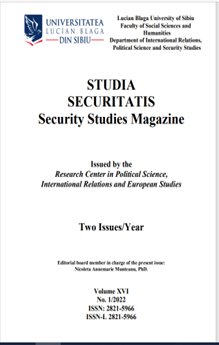
The understanding of ethnonationalism as the foundation of terrorist groups was long suspected to be true, yet only in the last decade, could the research prove to be so. These non-statal actors, which do not act in a violent manner, can become important threats for the national of international security, if provided with the right interest. Stating this, the implications for the regional and European security can be tremendous, as the civilian society will suffer greatly as an aftermath of a terrorist attack. Following this study, knowledge will be gained that will help to better understand the dynamics of relations developed between statal and non-statal actors. This paper is also an instrument underlying the concept of ethnonationalism and the connection of the term with terrorism, as we presently know it. From a methodological point of view, a qualitative method of research was used – the analysis of a case study, alongside a brief specialty literature review, in which research results regarding the topic were described. This article is open to any and all society members and can raise awareness of the public regarding the phenomenon of transformation of a non-statal actor, by providing some well-needed indicators.
More...
Fight against international terrorism is also led by a regional organization such as the Commonwealth of Independent States, which demonstrates the experience of effective counter-terrorism in the format of cooperation between CIS member states. This is done on the basis of the Treaty on Cooperation in Combating Terrorism (1999) drawn up in the provisions of the Protocol on the procedure and implementation of joint counter-terrorism measures on the territories of the CIS member states. Programs to combat international terrorism and other manifestations of extremism, for example, developed for the period 2020-2022, come to coordinate the efforts of the CIS states. With the understanding of the extent of the real threat of terrorism, the idea of creating a coordination center arose in the CIS, which later materialized through the creation of the CIS Anti-Terrorism Center (2000). The CIS is in a state of constructive dialogue with various international organizations to find effective ways to combat terrorism.The article will highlight the activities, the political and legal framework of the Commonwealth of Independent States as a regional security organization in the field of combating and preventing terrorism. The priority areas of cooperation between the CIS and other international organizations in the field of combating terrorism will be also analyzed.
More...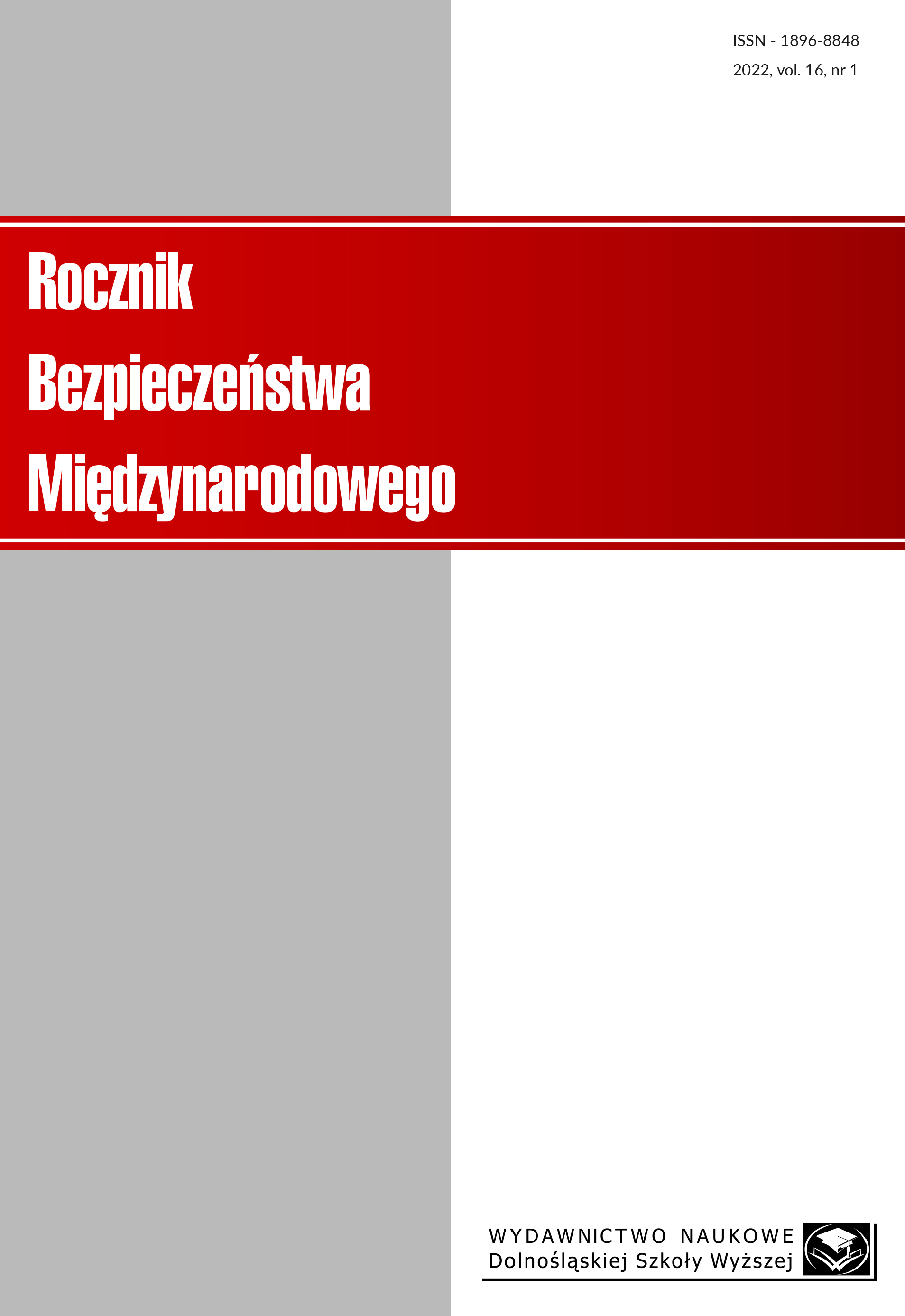
The subject of the research, the results of which are presented in this article, was the ongoing armed conflict in Ukraine, which began on February 24, 2022. The aim of the research was to analyze the course of hostilities and identify the causes and consequences of Russian failures. The article tries to answer the following questions: How do Russian actions present themselves in the context of the concept of new generation war? What mistakes did Russia make, and What were their consequences? What factors determined the failure of the first phase of the Russian operation? In the course of the conducted research, it was established that the Russians did not fully exploit the potential of the concept of new generation warfare. It was proved that the Russian operation in Ukraine was conducted inconsistently with the canons of the art of war. It was assessed that there was a set of key factors that had a decisive impact on the failure of the first phase of the Russian operation in relation to its strategic objectives, as outlined in February 2024. It was shown that the first of these was a critical error of misjudging the enemy's potential while overestimating the potential of their own troops. It was established that the Russians prepared and executed the invasion of Ukraine contrary to the canons of the art of war. It was shown that financial resources were misallocated during the implementation of the State Armament Program in 2020. Moreover, it was proved that corruption and wastefulness, underlying the de facto autocratic system of power existing in Russia, are responsible for the actual, different from propaganda, general state of the Armed Forces of the Russian Federation. In the article, the method of critical analysis, to which the available source material (articles, reports, monographs) was subjected, and the method of historical analysis made it possible to analyze the evolution of the Russian concept of a new generation of war were used. Also, the method of induction was used to draw general conclusions from a number of specific observations, the method of deduction was used in the process of moving from general rationales to specifics, and the method of synthesis helped to examine cause-and-effect relationships concerning the subject matter addressed and made it possible to formulate the conclusions. A significant difficulty in the research process was the issue of using Russian sources in a situation where articles with a clear propaganda character are posted in trade journals and other available sources, making their substantive value low. Therefore, the article refrains from citing Russian sources.
More...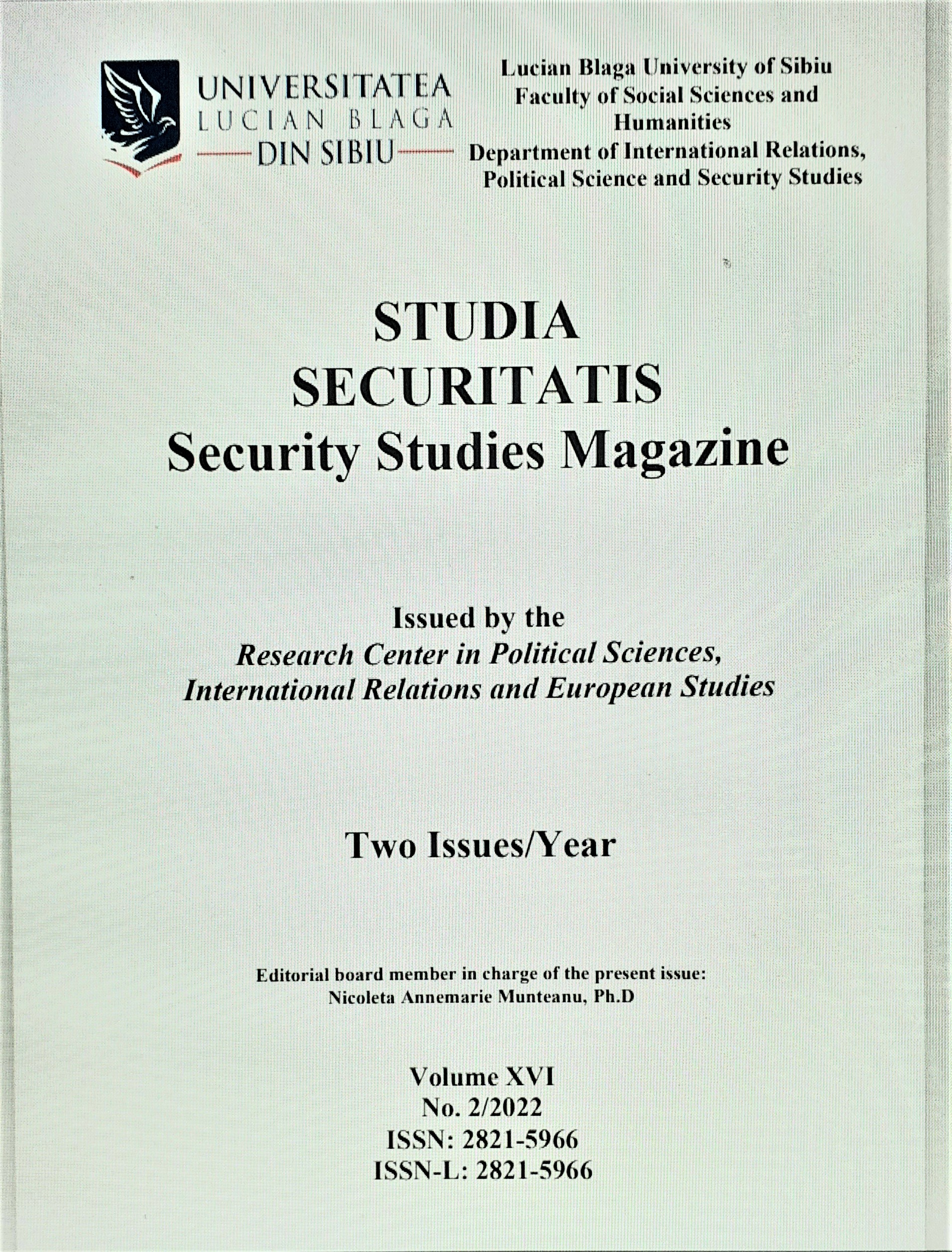
The article aims to investigate the impact of the migration phenomenon in the European Union (EU). It briefly examines the concept of smuggling of migrants and the main routes of illegal migration as well as the measures adopted by the EU institutions, in view of the priorities set by the EU institutions and the Member States, to step up efforts to establish an effective, humanitarian, and safe European migration policy. The article also pays particular attention to the illegal nature of this phenomenon and highlights the multiple and far-reaching implications of the activities surrounding illegal migration which generate and reinforce numerous other criminal activities.
More...
The notion of human security has become a dominant theme in international political discussions. This is partly explained by the fact that the production of arms and ammunition does guarantee security. Economic, food, health, environmental, and personal safety are all components of human security. In Nigeria, the country is grappling with security hitches cutting across the six geo-political regions. Kidnapping, banditry, robbery, murder, and wanton killings are common items in the daily news. More worrying is that, despite huge resources being injected into the defense sector, the Nigerian government seems unable to curb this menace that has been troubling the nation's well-being. The government, security agencies, and intelligence organizations, on the other hand, appear to be caught off guard by the atrocities committed by terrorists, herders, and instances of interethnic violence pointing to the fact that Nigeria is prone to anarchy. Against this background, this paper contextualized the lawlessness in Nigeria with specific reference to human security. The paper employs the qualitative method of data collection that utilizes secondary sources such as newspapers, the internet, and extant scholarly works. Based on findings, the rate at which schools are closing, frequent jailbreaks, rising food prices, citizen apathy toward the government, the obvious inability of the government to uphold its own end of the social contract it made with its subjects, and failure of all security containment strategies are all overt signs of a failing state. It is submitted that there is a need for government to be conscious of its primary goals, which include welfare and the protection of people's lives and property. The article suggests that Nigeria should employ artificial intelligence to combat the threat to the nation's status as a sovereign republic, which is being posed by groups that have taken over the numerous ungoverned spaces that dot the country's territory. Nigeria should also invest in digital learning methods and coordinate its numerous security agencies. The political order, authority, law, and structures must all be rebuilt because they have all fallen apart.
More...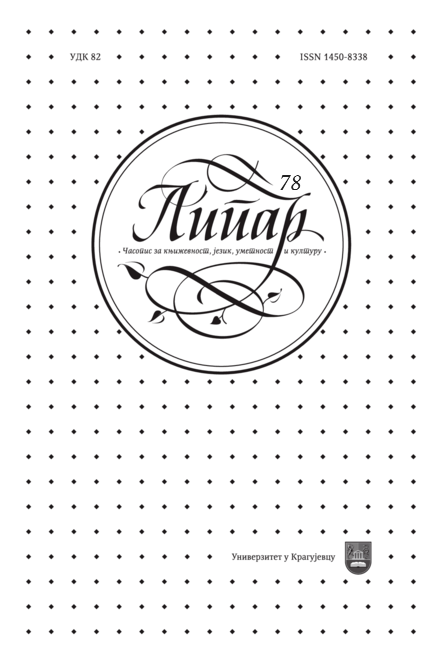
The paper examines different forms and intensity of censorship in culture in socialist Serbia and Yugoslavia. Since Yugoslavia was a country that tried to promote a third path between the Western capitalist and Eastern real-socialist social models from the mid-1950s, censorship had to be more subtle in culture and had some peculiarities, unwritten and often not very, well-defined rules.
More...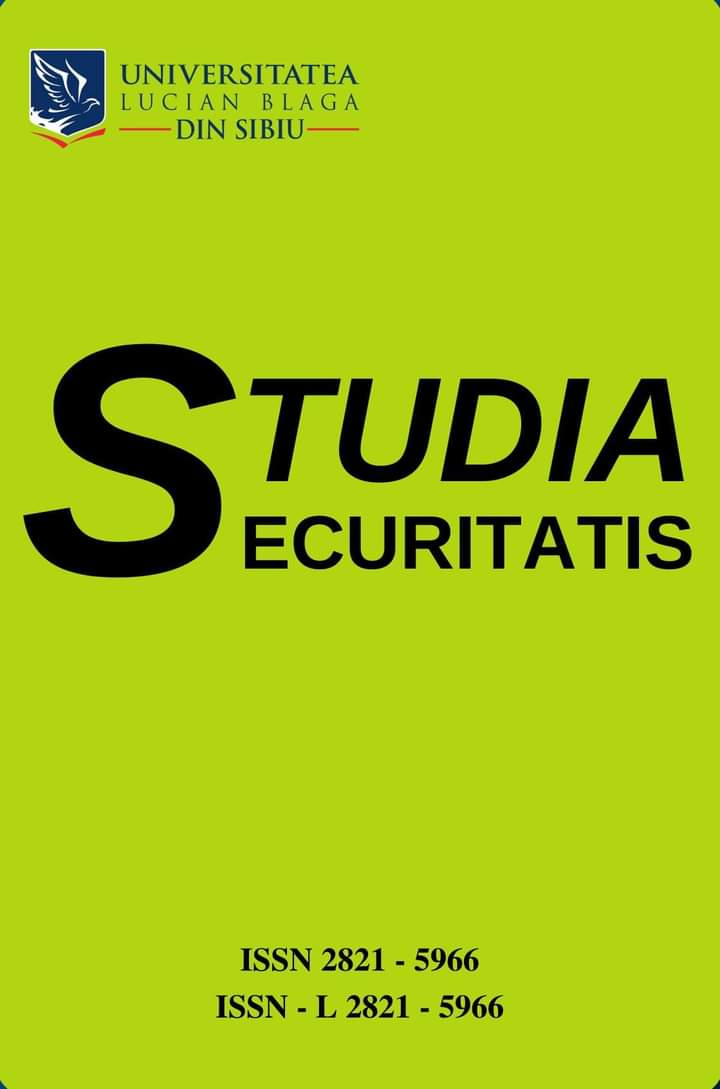
The Sovereign Citizen Movement is one formed by people who interpret the political, legal, and social reality through the prism of their own religious beliefs. The man was created freely by God, meaning "sovereign". Consequently, individuals are free from the legal norms imposed by other people. This is a movement without an organizational structure, which is replaced by its system of beliefs and values held by leaders and clearly defined organizations. Gordon Kahl's manifesto undoubtedly highlights the religious side of the sovereign citizen movement. The individual said in 1983 that the Kingdom of Christ was under siege by the forces of Satan who control the governments of the states, which is why people should no longer submit to them. Followers of the Sovereign Citizen Movement believe that their actions and attitudes are approved by God. They issued their own IDs, passports, and vehicle registration numbers, some with the phrase "Kingdom of God" emblazoned on them. Some of the "sovereign citizens" took their beliefs to extremes and became violent, killing those who opposed them. For this reason, the Federal Bureau of Investigation labeled the most extreme among them as terrorists.
More...
In this paper, we have chosen to discuss the topic of illegal migration from the perspective of the authorities responsible for maintaining law and public safety in Romania. Specifically, we will explore their approach to this threat and propose solutions within national strategies for law and public safety.Following an extensive analysis of the current social context, the evolution of criminality, the effects of antisocial acts, as well as the prevention and combat methods employed by other entities within the country and the European Union, the Ministry of Internal Affairs is seeking solutions to reduce the negative impact of these threats on public order. The objectives of national public order strategies vary from country to country, but they all share the common goal of ensuring a safe and secure environment for citizens. Considering factors such as increased mobility (including policies that promote it), legal and illegal migration, the dynamics of the international security environment, interstate relations, and cross-border criminality, cooperation in ensuring public order becomes imperative.National public order strategies are essential tools for preventing and managing events that may disrupt the harmony and stability of nations. They contribute to maintaining the safety of citizens, protecting individual rights and freedoms, and promoting social cohesion. A well-developed and implemented national strategy has a significant impact on the quality of life for citizens, creates opportunities, attracts foreign investments, and thus fosters economic development and social progress.This article provides an overview of the most important aspects considered relevant for the analysis and planning of illegal migration. It aims to review previously developed public order and security strategies, identifying parallels to assess the dynamics of the related criminal phenomenon and the evolution of preventive and counteraction procedures.
More...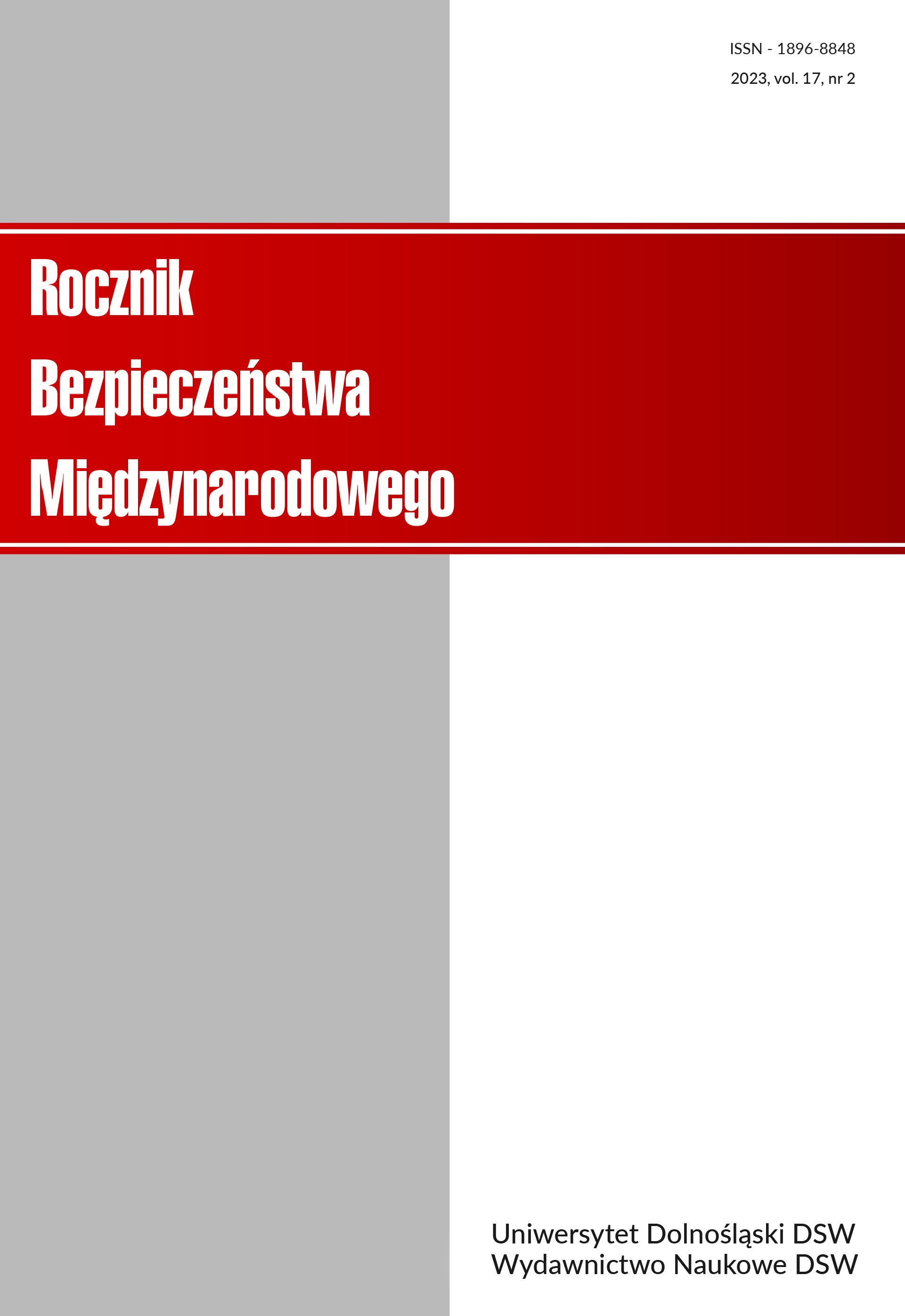
The importance given to Poland's relationship with the sea is significant for the Polish Navy, while for the state’s security and its economy, it is indisputable. The article aims to show how the idea of maritime education, here in the sense of aspiring to be associated in one's future professional life with work at sea, service in the Polish Navy, or, finally, with a passion such as sailing, is promoted and popularised among Polish society. The text attempts to answer the question of which of the themes presented in the public discussion in the "traditional" way (analogue media sources), as well as on the Internet, are of particular importance in this case. The paper reviews a variety of sources and attempts to identify the range and examples of literature, journalism, selected portals and websites, museums, etc., enabling a preliminary assessment of the scale and, to some extent, the methods of the social impact of the importance of defence education and maritime training. This is particularly important in the context of the new Homeland Defence Act of March 11, 2022. The topics related to defence, military and maritime training, maritime education and the relationship between Poland and the sea are present in the public space and are often discussed. This demonstrates not only its popularity but also its importance. Concern for the prospects of this subject is particularly important given the popularity among young people of professions related to the sea, including the uneasy service in the Navy. If the most modest prognoses of the prospects for the development of the Polish Navy remain, for the most part, only "on paper," the interest in tying one's life's destiny to the sea and the Navy will diminish among the young generation.
More...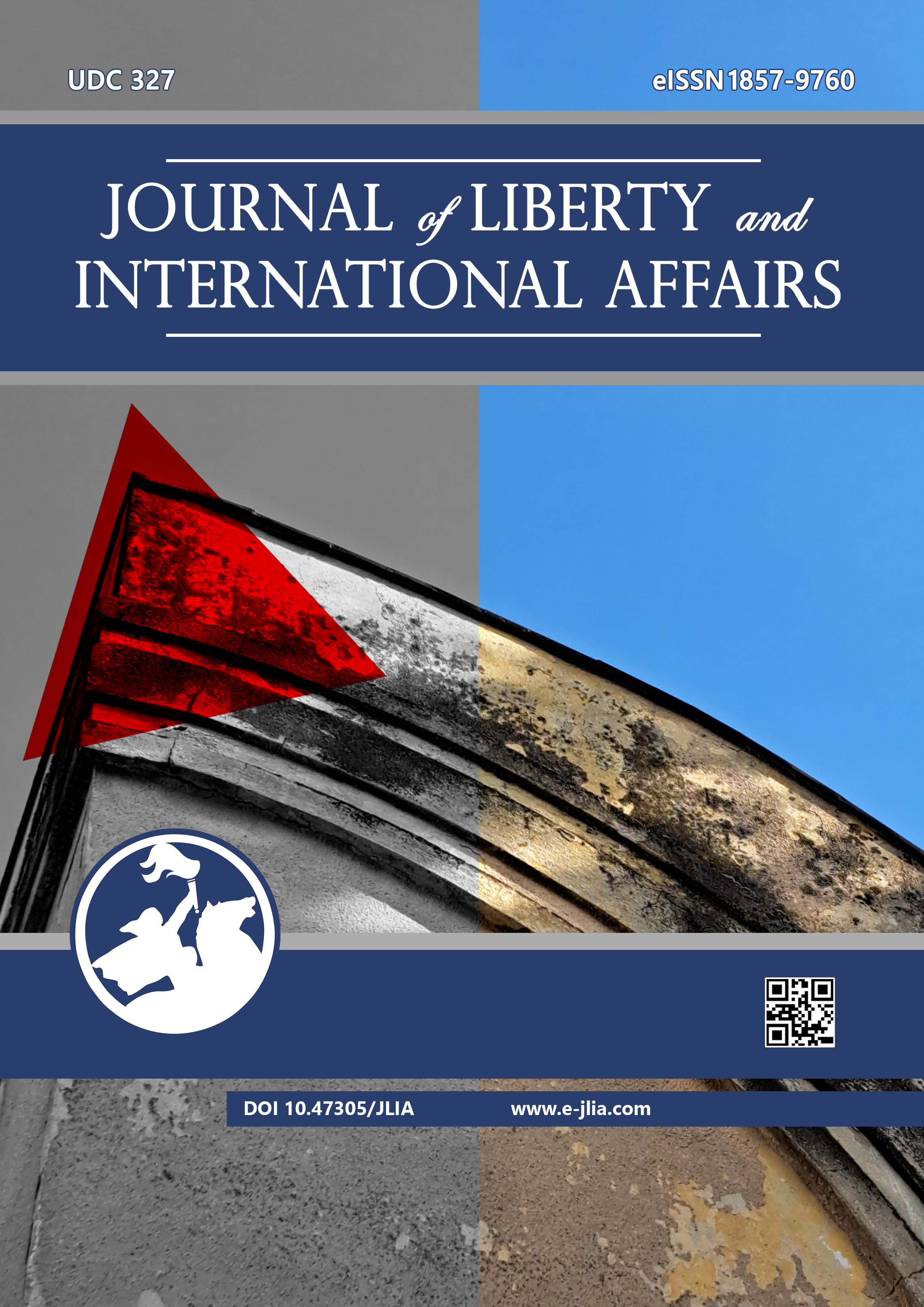
This article examines the importance of institutionalizing political parties in developing democracy. This article develops the conceptual framework of the institutionalization of political parties, which combines institutionalization factors in both internal and external dimensions and applies this conceptual framework to extract lessons on the institutionalization of political parties in various democratic countries, including Thailand. The results of applying the aforementioned conceptual framework, in particular to the case of Thailand, indicate that the failure to apply the notion of institutionalization to political parties in this country stems from the traditionally narrow-minded approach to considering the institutionalization of political parties rather than problems with the idea itself. Thus, this article suggests that building an institution for a political party is something that can be designed by giving importance to the development of political parties in a structured manner, along with promoting political parties to have the ability to play a solid political role under the democratic regime.
More...